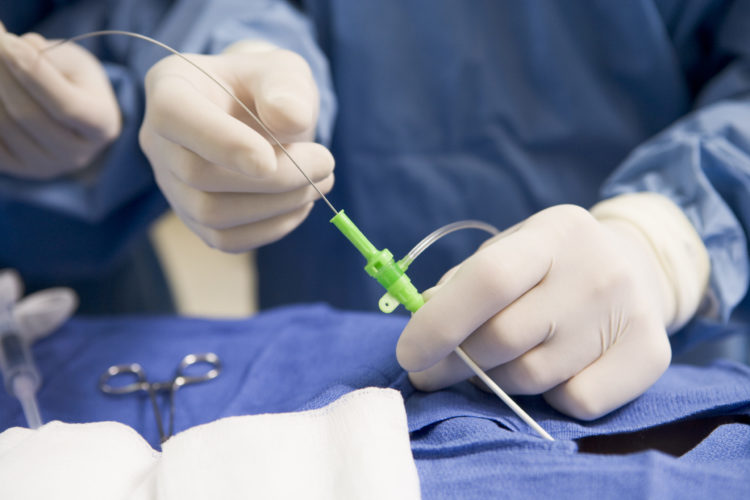Major grant for innovative heart treatment devices

A collaboration to create a new generation of medical devices which could radically reduce the risks and complications of treating coronary heart disease, led by the University of St Andrews, has been awarded a major funding grant of nearly £1m.
The project, a collaboration with Queen’s University Belfast, University of the Highlands and Islands, the Manufacturing Technology Centre and 5D Health Protection Group, will use the £967,008 grant from the Engineering and Physical Sciences Research Council (EPSRC) to create prototype devices designed to make the treatment of coronary heart disease (the common cause of heart attack and angina) easier and safer.
The team has developed novel materials that allow the release of an active agent called nitric oxide (NO) from the surface of medical devices. NO can prevent problems such as blood clotting and spasm which frequently occur when deploying medical devices inside arteries.
Dr Stewart Warrender, Senior Research Fellow in the School of Chemistry at the University of St Andrews and EPSRC Project Manager, said: “This exciting project lays the essential groundwork for creating prototype devices for use in future clinical trials. It will bring the positive impact these materials can make on our lives much closer to realisation.”
The materials were first created by chemists at the University of St Andrews and are now being developed by St Andrews spin out company Actiframe.
The materials are highly porous powders that can be incorporated into the polymers used to manufacture the devices. The pores within the powders act as reservoirs for NO, providing slow and controlled release of the active agent during the lifetime of the product.
This new funding will develop methods for incorporating the materials into devices employed in procedures such as percutaneous coronary intervention. These materials will make this treatment safer and easier to perform and less painful for the patient by reducing vasospasm, where the blood vessel clamps down on the medical device thus hampering device insertion.
It will also significantly reduce the risk of the artery becoming blocked post treatment, thereby facilitating future access without having to resort to more costly and higher risk procedures.
Coronary heart disease is the leading cause of death globally – more than nine million each year – and costs the UK economy billions in healthcare costs and productivity losses. These next generation devices will help drive down these costs by reducing both the procedural time and length of hospital stay post treatment.
The collaboration brings together chemists, biomedical scientists, engineers, clinicians and industry experts from across the UK, and is supported by the Life Science division of Lubrizol.
Actiframe is a newly formed company which aims to provide NO-releasing technology to medical device manufacturers.
The EPSRC is one of the main funding bodies for engineering and physical sciences research in the UK and is part of UK Research and Innovation, a new body which works in partnership with universities, research organisations, businesses, charities and government to create the best possible environment for research and innovation to flourish. The grant reference for this award is EP/V008498/1.
The MTC (Manufacturing Technology Centre) was established to prove innovative manufacturing processes and technologies in an agile environment in partnership with industry, academia and other institutions. The MTC houses some of the most advanced manufacturing equipment in the world, creating a high quality environment for the development and demonstration of new technologies on an industrial scale. This provides a unique opportunity for manufacturers to develop new and innovative processes and technologies.
The 5D Health Protection Group Ltd is a leading innovation and contract research organisation (CRO) specialising in the areas of biofilms, infection control, antimicrobials and microbiology.
Issued by the University of St Andrews Communications Office.